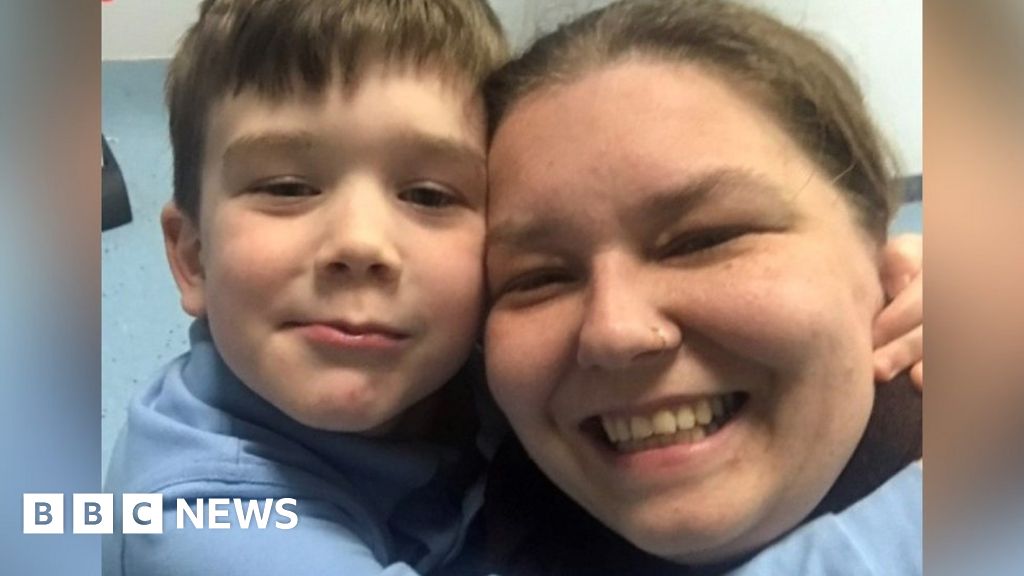A mother whose child died aged six from a brain inflammation caused by measles hopes sharing her story will encourage parents to “vaccinate more”.
It comes as the UK Health Security Agency (UKHSA) warned of measles outbreaks in parts of London.
Gemma Larkman-Jones wants more parents to consider having their children vaccinated sooner.
…
Prof Dame Jenny Harries, UKHSA chief executive, warned that measles is spreading among unvaccinated communities, and added that a “national call to action” is needed across the country.
Vaccination rates across the UK have been dropping, but there are particular concerns in parts of the capital as well as in some areas of the West Midlands.



Some of us here are old enough to remember when everyone knew someone who had had polio, or had had it themselves. Our parents lined us up around the block for both the Salk and Sabin vaccines, even knowing that for some of these recipients, it would miss, or worse, cause harm. We all did it anyway. Because we all knew what the alternative was. When I was five, the smallpox vax almost took me out – but I never heard a word of regret, or uttered one myself, because the reality of a real smallpox infection is magnitudes worse.
For a few years, when Salk or Sabin were spotted in public, parents would literally hug their feet. This is not an exaggeration. They were literally considered human saints, and their vaccines literal miracles. Before the polio vaccine, anyone – especially the healthiest of the young, who should have been most immune to any illness – could feel sick in the morning and be paralyzed or dead by nightfall. If you lived, you often walked with a limp or a cane, and that doesn’t account for post-polio complications: you could “survive” polio and still have it kill you decades later. Older folks are STILL dying of post-polio complications today, in the same way that people who survived “the Spanish flu” in 1918-1921 succumbed to neurological illnesses decades later.
I don’t believe in the god part of it, but you can’t fault them for grasping for those straws. Because for all of human history until the last century or so, prayers were all you had left when the medicines ran out, and even getting anything effective to start with, including a diagnosis, was sketchy as hell. Everything from “bad air” (miasma) to “imbalanced humours” was considered valid disease theory.
We are SO much more privileged now than we realize. And the realities we don’t care to see are willingly hidden from us by the curators of the media we consume. Back then, news was deadly serious, almost sacred, and very highly valued. People didn’t fuck with it. Walter Cronkite was possibly the most trusted man in the United States, and everyone knew who Edward R. Murrow was long after he died in 1965. But today, it doesn’t even make a pretense at being news: it’s entertainment, even when it’s news. So who is going to show us the realities no one like to see and advertisers won’t pay to support?
So I already know what your fictional parents would say. I don’t have to guess, because polio survivors were all around me when I was a kid. And it wasn’t just vaccines; antibiotics did not really become widespread until after WWII in the US. Many, many people had living memories of the TB sanatoriums, and friends they’d had that died far too young, and how in many wars illness killed more soldiers on all sides than bullets ever did. Gene Tierney, a movie actress, was pregnant and got German measles from a fan on a USO tour; because of it her daughter was born profoundly disabled and lived most of her long life institutionalized. Scarlet fever, measles, all these diseases were still in living memory, along with their profound costs and legacies of pain.
So people did not dick around with illness, in the same way most of us don’t dick around with gravity tests off tall buildings, because it was far too often either outright deadly, or came with too many consequences to take chances with.
People did what they had to do to avoid getting sick, it was part of being a good citizen, and if you didn’t do it you were an embarrassment and a fool. It wasn’t just you doing it for yourself, it was literally what you owed to your community as a human being.
Had anyone said the anti-vax, anti-science shit some are saying today, they’d have become an instant pariah and outcast, and widely seen as the threat to the common good that they are.